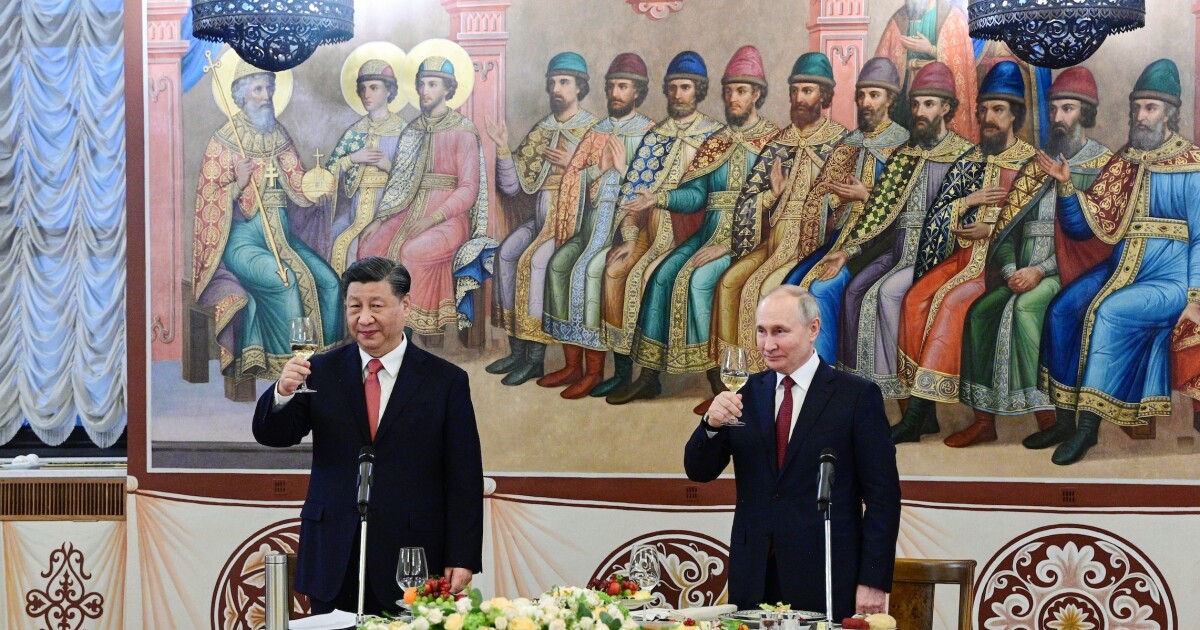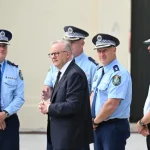

Russian officials plan to outline “the contours of a new world order” over the next month as Russia and China intensify their efforts to gain influence at the United Nations.
“Our idea is to hold a comprehensive, forward-looking strategic discussion about the contours of a new world order that is coming to replace the unipolar one,” Ambassador Vasily Nebenzia, the top Russian envoy at the U.N., told state media. “This conversation is long overdue.”
RUSSIA DOES NOT ‘DESERVE’ UN SECURITY COUNCIL SEAT, US AMBASSADOR SAYS
Nebenzia will play a prominent role in stage-managing that effort, as Russia’s upcoming turn as rotating president of the U.N. Security Council will allow Moscow to shape the forum’s agenda for the month of April. And the meaning of the maneuvering in New York was made explicit in Moscow on Friday, with Russian President Vladimir Putin unveiling a new foreign policy concept just one day before Nebenzia’s team takes hold of the Security Council gavel.
“The Russian Federation intends to give priority to the elimination of vestiges of the dominance of the United States and other unfriendly countries in world politics,” the new Russian concept states.
That brassy forecast comes just weeks after Chinese General Secretary Xi Jinping told Putin that Beijing and Moscow are orchestrating “changes — the likes of which we haven’t seen for 100 years.” Yet their coordination also has galvanized an international backlash against their desired overhaul of the international arena.
“China sees Putin’s weakness as a way to increase its leverage over Russia. And it is clear that the power balance in that relationship, which for most of the last century favored Russia, has now reversed,” European Commission President Ursula von der Leyen said this week. “The Chinese Communist Party’s clear goal is a systemic change of the international order with China at its center. We have seen it with China’s positions in multilateral bodies, which show its determination to promote an alternative vision of the world order.”
The war in Ukraine intensified the diplomatic jockeying for influence across the developing world as a series of clashes at the U.N. General Assembly placed many countries across the Global South in the position of geopolitical swing voters. Russia and China have found some success in those capitals by invoking the memory of Western imperialism.
India, a historic purchaser of Russian weapons and now a crucial partner for the United States as a potential counterweight to China in the Indo-Pacific, has frustrated Western states by hesitating to issue overt denunciations of Russia’s aggression. And India’s imports of Russian oil skyrocketed over the last year as the G-7 imposed a price cap on Russian energy.
Yet Putin’s apparent dependence on Xi also could enhance New Delhi’s cooperation with U.S. and European countries, as India is wary of anything that enhances China’s power, particularly given that India has a sometimes-violent border dispute with China, which is driving a debate within India’s national security establishment.
Some officials argue that India has a chance to drive a wedge between Moscow and Beijing, but others fear the prospect of relying on Russia for weapons in the event of a crisis with China.
“There are others who say … that there’s very little that India can do or offer that would actually get Russia to even remain neutral in the event of a China-India conflagration,” an Indian foreign policy analyst told the Washington Examiner on condition of anonymity. “My sense over the past year is there is increasing frustration as well that despite this consistent engagement by India, that the Russians are not playing ball.”
Yet Putin’s team acknowledged no hint of trouble between Moscow and New Delhi.
“The policy on unlocking the potential of strategic partnership with our great neighbors — the People’s Republic of China, the Republic of India, the countries of the Islamic world, as well as countries of ASEAN, Africa, Latin America, and the Caribbean — has been enshrined as a vital resource,” Russian Foreign Minister Sergey Lavrov told Putin.
CLICK HERE TO READ MORE FROM THE WASHINGTON EXAMINER
That could lead to a dynamic in which Indian diplomats use some rhetoric reminiscent of Moscow’s call for “multipolarity” while taking more substantial steps to cooperate with the U.S. and its allies.
“Essentially, what India wants is greater representation space for itself, vis-a-vis the West and established powers in the developed world, but also it’s driven equally by concerns about China and China’s dominance of the Global South,” the Indian analyst said. “So, would India buy into the Russian view of multipolarity? I’m not sure. I don’t think so. But does it articulate its own view of multiplicity? Yes.”





